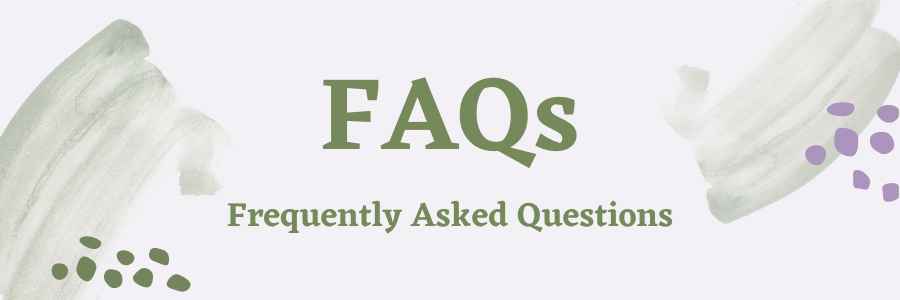Professional Consultation Services
Providing professional support to mental health providers
Supporting the Mental Health of Others Can Be Lonely Work
Sometimes you need your own support – another professional to listen to your concerns and assist you in identifying the possibilities.

You remember the days when you had regular supervision. If you were lucky, you had a supportive supervisor who both cared about you as an individual and helped you determine how to do your best work in supporting others. That kind of support can be missing once you’re independently licensed and no longer regularly receiving supervision.
You may be a mental health professional working in private practice, and you’re unexpectedly faced with some complexities in your work with a client. Maybe your work with them has brought to surface new concerns in their life. You feel alone in providing support and find yourself looking for resources or for an opportunity to discuss your role with another mental health professional. Consultation can provide a space for you to discuss the impacts your experiencing from your work, and to receive your own support in serving others to the best of your ability.

Specialized Training Can Be Expensive and Consultation Can Help Bridge the Gap
Religious Harm. Body Image.
Late-identifed Neurodivergence.
These are all areas where I have specialized training and have spent hours learning and working with folks impacted by these concerns. Maybe you’re looking to learn a bit more about religious trauma, to figure out if someone you’re working with may have experienced this type of harm. Perhaps you’ve heard about weigh-inclusive care or Health at Every Size (HAES), but aren’t sure if this is something you want to incorporate into your work. You may desire to ensure your practice is operating in a neuro-affirming way, but talking with a neurodivergent professional could help make that a reality.
Consultation offers the opportunity to discuss any of these topics, to learn more, to get access to additional resources, and to receive guidance related to your specific situation.
Consultation Can Help You Make Important
Decisions Regarding Your Work
Learning about the nuances of various areas of mental health increases confidence that you are operating in ways that are both ethical and rewarding.

We all come across situations where we need some support when we are in a position of helping others find healing and wellness. Consultation is a great way to get that extra support.
You have the opportunity to discuss your situation with licensed mental health professional who has worked in various settings and has extensive training in specific areas of mental health. You may gain some insight into what “the next right thing” is for you as you receive personalized support to meet your needs.
Common topics of consultation include, but are not limited to:
- Understanding Religious Trauma / Supporting Survivors of Religious Trauma
- Body Mindfulness / Weight-Inclusive Care
- Late-Identified Neurodivergence / Neurodivergent-Affirming Practices
- Creating, Marketing, and Facilitating Virtual Groups
- Ins & Outs of Insurance-Based and Private Pay Services
- Options for Providing NBCC-Approved Continuing Education Trainings

What is included in consultation?
Consultation is an opportunity for you to discuss any questions you have regarding any of my areas of expertise, including both clinical specialties and knowledge gained from experience. Consultation may include psychoeducation, discussing of various treatment options, information and support in making practice-related decisions, as well as various other activiities that are supportive in the specific consultation arrangement. Consultation may also include discussion of a specific case, in a professional manner with the client’s personal details kept confidential, in order to gain additional insight into how to best support the client.
How do I know if consultation could be helpful?
If you find yourself feeling “stuck” in some area of your work as mental health provider, consultation may be helpful. Consultation can provide a space to discuss your particular concerns, consider potential options, and gain information and resources to support both yourself and your clients. You may benefit from consultation if you find yourself experiencing some countertransference related to your work. Professional consultation can also be helpful when you’re considering big decisions about your practice, such as the financial setup, the areas you may want to specialize in, or options for providing services outside of one-on-one therapy.
How much does Consultation cost?
I offer Professional Consultation on a pay-as-you-can scale from $75-$150 per hour. Because I believe in the power of compassionate, knowledgeable providers to help survivors thrive, I want to make consultation as accessible as possible. I ask that you, as a provider, assess your financial ability to determine what you are able to pay for consultation services. For those who are able to afford $150 per hour, know that your payment helps offset the cost for another provider who is not currenlty in a position to pay that amount.
What makes you qualified to offer consultation?
I appreciate this question, and am glad you are considering this before seeking to work with someone in a consultation arrangement.
The following are a few of the characteristics that add to my qualifications in offering professional consultation:
- I have over 10 years experience working as a licensed mental health provider.
- I have provided mental health counseling in a variety of settings, including college counseling centers, community mental health agencies, group private practice, and solo private practice.
- I have experience providing services in both insurance-based settings – with a group contract and as an independently credentialed provider – and in private pay settings.
- I have both lived experience and extensive training in my areas of clinical expertise – religious/spiritual harm, weight-inclusive care, late-identified neurodivergence.
- I have participated in multiple continuing education trainings on topics related to my areas of expertise.
- I have worked with 100+ survivors of religious trauma in individual and/or group settings. This work has included supporting each person as they tackle things like shame, guilt, fear of eternity, questions about identity, and connection with their own autonomy and voice. I’ve also walked alongside folks as they determine their own path forward, and their desired relationship to religion and/or spirituality.
- I am an Approved Continuing Education Provider (#7712) with NBCC, able to help folks review various options for offering continuing education and determine the best path for them.
- I am passionate about ensuring that therapists and others who are in a position to provide support to others are knowledgeable and equipped to do so in ways that help all parties thrive.
Blog Posts Related to Professional Consultation
Get Started with Professional Consultation
Take a moment to complete the consultation interest form linked below and let me know what areas of your work you are looking to consult on. I look forward to providing consultation to you and helping you feel equipped in your work.
[Unless specifically noted, no content on this site was created using AI technologies.
All content is the property of Michelle F. Moseley Counseling, PLLC]


![FEATURED: Bodies Behind the Bus Podcast [Update]](https://michellefmoseley.com/wp-content/uploads/2025/05/Bodies-Behind-the-Bus-podcast-logo-webp-150x150.webp)